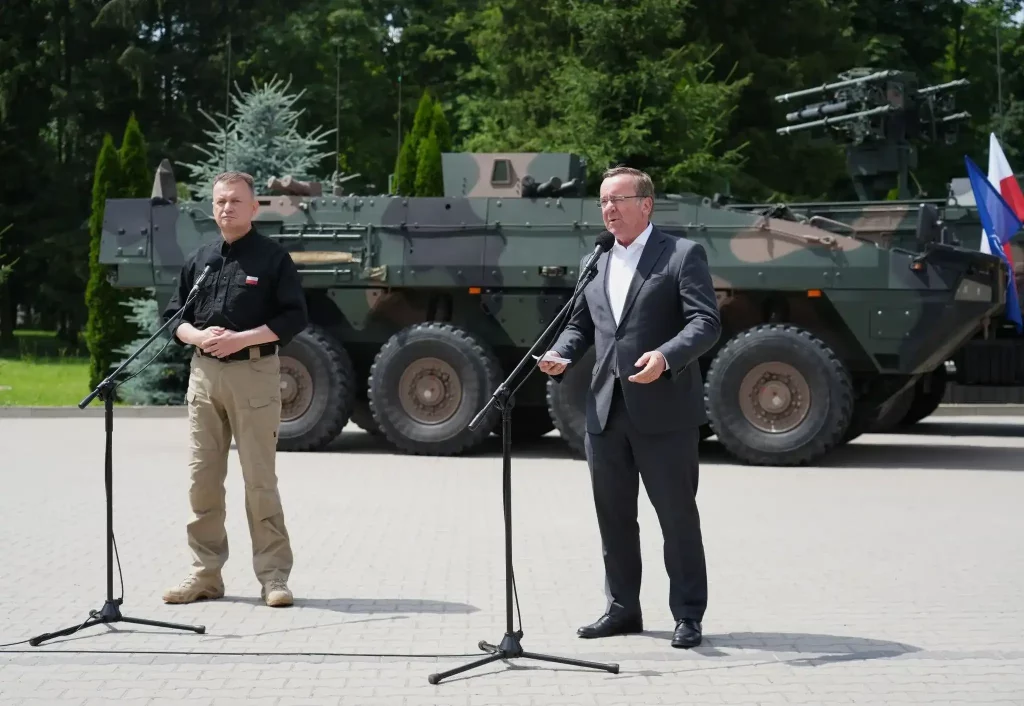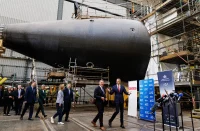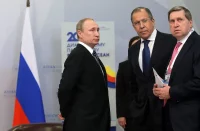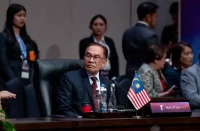Germany and Poland each have their own interests in finalizing agreements for strengthening military ties between them. Germany’s are long-term and strategic with a view towards keeping an increasingly nationalist Poland close while also preparing the ground for a possible rapprochement if the opposition comes to power. By contrast, Poland’s are short-term and tactical since they mostly only concern the ruling party’s electoral interests ahead of fall’s vote.
German Defense Minister Boris Pistorius held talks with his Polish counterpart Mariusz Blaszczak on Monday while visiting that country. They hope to finalize an agreement in the next ten days on a Polish tank hub, which has reportedly been held up due to differences over costs according to Der Spiegel. It’s also unclear whether the earlier deployment of Germany’s Patriot air defense systems there will be extended, though this too will probably be decided in the days ahead of next week’s NATO summit.
There’s plenty riding on the outcome of the German-Polish military talks due to what they represent for the EU as well as the domestic and regional contexts in which they’re occurring. Regarding the first, the strengthening of such ties between these two age-old rivals would show that ancient hatchets continue to be buried. These optics could reassure average Europeans of their continent’s unity amidst concern that it’s weakened in recent years, especially since the start of Russia’s special operation.

As for the domestic context, Poland’s ruling “Law & Justice” (PiS) party has an interest in convincing voters ahead of fall’s elections that its hardline stance towards Germany and Russia has paid off. Upon finalizing the previously described deals with Berlin, they could claim that their country’s indispensable role in ensuring European security has been recognized by the bloc’s de facto leader despite those two’s troubled ties. This could rally PiS’ nationalist base in the face of the globalist opposition’s challenge.
Building upon the above, the regional context relates to PiS’ interest in presenting Poland as a Great Power, which would be advanced by Germany agreeing to strengthen military ties with it and the ruling party subsequently spinning this as tacit acknowledgement that geopolitical gravity is shifting eastward. The perception of PiS having restored their country’s long-lost leadership status could dissuade their nationalist base from voting for third parties to protest the ruling party’s support of Ukrainian refugees.
The domestic and international contexts are somewhat different from Germany’s perspective. Regarding the former, its leadership wants to show people that it won’t let PiS’ hardline election rhetoric against their country impede joint efforts to ensure European security, which portrays Berlin as taking the so-called higher ground. As for the second, Germany believes that it’s better to keep PiS’ nationalist Poland close than to push it away, especially since the opposition might soon return to power and heal tensions.
In the event that the incumbents are deposed after fall’s elections, then a rapprochement could unfold between their countries, which would serve Germany’s interests in all respects. Europeans would no longer doubt their bloc’s unity, while Germans would see that their leadership did the right thing in not politicizing military cooperation with PiS’ Poland. On the regional level, a newly allied Poland wouldn’t challenge Germany for influence in Central & Eastern Europe, thus ensuring Berlin’s hegemony there.
Analyzed from these angles, it can be concluded that Germany and Poland each have their own interests in finalizing agreements for strengthening military ties between them. Germany’s are long-term and strategic with a view towards keeping an increasingly nationalist Poland close while also preparing the ground for a possible rapprochement if the opposition comes to power. By contrast, Poland’s are short-term and tactical since they mostly only concern the ruling party’s electoral interests ahead of fall’s vote.
In any case, their diametrically opposed motivations paradoxically incentivize these current rivals to resolve their reported differences over the tank hub deal, not to mention encouraging Germany to consider extending the deployment of its Patriot systems in Poland until the end of the year. As key NATO members, they also have an interest in showing that the bloc is united ahead of next week’s summit, with this context being the primary reason why they want to reach an agreement as soon as possible.
Source: the author’s blog














Comments